Blockchain often brings to mind cryptocurrencies like Bitcoin, but its potential goes far beyond digital currencies. At its core, blockchain is a technology with potential for many industries, including e-commerce.
Despite being relatively new, blockchain is already influencing the operations of online businesses. It’s even safe to say that it’s not just a passing trend, but more like a practical tool that brings transparency, security, and efficiency to digital marketplaces.
In this article, we’ll dive into how blockchain fits into e-commerce, its advantages, and what you should know before diving in yourself.
What is blockchain?
A simple explanation
Blockchain might sound complex, but it’s easier to understand when you break it down. Let’s use an example.
Imagine a digital notebook where every transaction is recorded/written down. However, instead of one central notebook controlled by a single party, is like a network of notebooks shared among multiple participants. Whenever a transaction occurs, it is recorded in all notebooks simultaneously.
The result? Nearly impossible to alter or fake any record. It ensures transparency and builds trust among all participants.
Key features of blockchain
As you already know the basics of the blockchain, let’s introduce its features that set it apart from traditional systems:
- Decentralized:
There’s no single authority controlling the data. Instead, it’s distributed across a network of participants, making it more secure and resilient. - Secure:
Once a transaction is recorded, it cannot be changed without altering the entire chain of transactions. This ensures the integrity and security of the data. - Transparent:
Every participant in the network can view the transaction history. This transparency builds trust, as there’s no room for hidden changes or manipulation.
Why is blockchain relevant for e-commerce?
Challenges in traditional e-commerce
E-commerce has become an integral part of our lives, but it’s not without its drawbacks. Buyers often worry about receiving substandard products or falling victim to scams. Sellers, on the other hand, face risks like fraudulent chargebacks or late payments.
Additionally, central platforms like payment gateways or marketplaces can suffer from outages, data breaches, and high transaction fees. These problems highlight the need for more secure, efficient, and reliable solutions.
How blockchain can help e-commerce
Blockchain addresses many of these pain points. By decentralizing transaction records, it eliminates the need for a central authority. For example, if a customer orders a product, the blockchain can record transparently every step – from payment to delivery. Additionally, cross-border payments become faster and cheaper, as blockchain removes the need for intermediaries.
Blockchain in e-commerce use cases
Transparent supply chain
One of the most promising applications of blockchain in e-commerce is supply chain transparency. Imagine being able to trace the product’s journey from its origin to your hands.
For instance, a coffee company could use blockchain to show customers exactly where their beans were grown, roasted, and packaged. This level of detail helps build trust and ensures ethical sourcing. Industries like food, fashion, and electronics stand to benefit the most from this application.
Smart contracts
Smart contracts are self-executing agreements where the terms are written directly into code.
For example, a smart contract could release payment to a seller only after a product is delivered and confirmed by the buyer. This eliminates the need for intermediaries, speeds up processes, and reduces disputes. Smart contracts can also handle tasks like subscription renewals or warranty claims.
Tokenized loyalty programs
Traditional loyalty programs often suffer from low engagement because customers find them restrictive or difficult to use.
Blockchain-based loyalty programs can solve this by issuing tokens instead of points. These tokens can be easily traded, redeemed across multiple platforms, or even converted into cryptocurrencies. This flexibility makes loyalty programs more appealing and increases customer retention.
Secure payments and cryptocurrencies
Blockchain enables secure, fast, and low-cost payments using cryptocurrencies. For businesses operating globally, this is advantageous as it eliminates high fees and long processing times associated with traditional payment methods. Accepting cryptocurrencies also opens up new opportunities to reach tech-savvy customers who prefer decentralized payment options. Additionally, the encryption used in blockchain ensures that payment data remains secure, reducing the risk of fraud.
Identity verification and fraud prevention
Identity theft and fraud are growing concerns in online shopping. Blockchain can address this by storing customer identities on a decentralized network. Instead of sharing sensitive information with multiple platforms, customers can verify their identity without exposing unnecessary details. This not only enhances privacy but also protects businesses from fraudulent activities.
Decentralized marketplaces
Decentralized marketplaces allow buyers and sellers to interact directly without relying on a central platform. Transactions are handled transparently using smart contracts, which reduces fees and creates a fairer environment. These marketplaces give more power to users and reduce reliance on intermediaries.
Benefits of blockchain e-commerce
Trust and transparency
Blockchain’s transparent nature ensures that all transactions are verifiable. This reduces the likelihood of fraud and gives customers confidence in their purchases.
Lower costs
By eliminating intermediaries like payment processors and escrow services, businesses can lower operational costs. For example, international transactions can be processed directly through blockchain, saving money on currency conversion and bank fees.
Faster transactions
Traditional payment systems, especially for cross-border transactions, can take days to process. Blockchain enables near-instant settlements, ensuring that businesses and customers don’t have to wait too long.
Data security
Blockchain’s decentralized and encrypted design makes it highly secure. Customer data is stored across a network, reducing the risk of hacking and data breaches.
Better Customer Experience
By streamlining processes and offering greater transparency, blockchain creates a smoother, more reliable shopping experience. Customers can track orders in real time and trust that their data is handled securely.
Challenges of adopting blockchain in e-commerce
Technical complexity
Blockchain is not a plug-and-play solution. Integrating it into an existing e-commerce platform requires technical expertise. Businesses need to understand how the technology works and how it can be tailored to their specific needs.
Scalability issues
Blockchain networks can struggle to handle a high volume of transactions, leading to delays and increased costs during busy periods. This is a significant challenge for e-commerce platforms with heavy traffic.
Regulatory concerns
The legal landscape around blockchain and cryptocurrencies is still evolving. Businesses need to stay updated on regulations in their regions to ensure compliance. This can be particularly challenging for companies operating in multiple countries.
Initial costs
While blockchain can save money in the long run, the upfront investment required for development and integration can be substantial. Businesses need to weigh these costs against the potential benefits to determine if blockchain is the right solution for them.
How to integrate blockchain into your e-commerce business
Start small
Begin with a specific use case, such as accepting cryptocurrency payments or launching a blockchain-based loyalty program. This allows you to test the waters without a full-scale implementation.
Partner with experts
Blockchain is complex, and having experienced developers on board ensures a smoother integration. They can help design a solution tailored to your business needs.
Stay compliant
Regulations around blockchain and cryptocurrencies can be tricky. Work with legal advisors to ensure that your blockchain use complies with the laws in your region, especially if you operate internationally.
Future of blockchain in e-commerce
As blockchain technology continues to evolve, its applications in e-commerce will only grow. In the future, we can expect to see more decentralized marketplaces, smarter supply chains, and greater integration with Web3 technologies. Businesses that adopt blockchain early will be better positioned to offer transparency, efficiency, and trust to their customers, giving them a competitive edge in the digital marketplace.
Blockchain’s role in e-commerce is only set to grow. As the technology matures, we can expect more decentralized marketplaces, smarter supply chains, and deeper integration with Web3 technologies. Businesses that adopt blockchain early will gain a competitive edge.
GET IN TOUCH
At SpearDevs, we specialize in building tailored e-commerce solutions.
Whether you want to integrate secure payment options, create transparent supply chains, or develop loyalty programs, our team has the expertise to help.
Conclusion
Blockchain e-commerce is more than just a buzzword. It’s a technology that addresses key challenges – from trust and transparency to security and efficiency. By understanding its potential and challenges, businesses can use blockchain to deliver better experiences for their customers.























